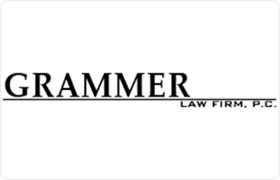Myrtle Beach DUI-DWI Lawyer, South Carolina
Sponsored Law Firm
-
 x
x

Click For More Info:
-
Grammer Law Firm, P.C.
1700 Oak St Conway, SC 29526» view mapCriminal Proudly Serving Horry County
You need an attorney with criminal defense knowledge who will vigorously protect your rights and interests.
800-957-8401
FREE CONSULTATION
CONTACTKaren A. Sauls
Juvenile Law, Domestic Violence & Neglect, Firearms, DUI-DWI, White Collar Crime
Status: In Good Standing
Carla Faye Grabert-Lowenstein
Family Law, Divorce & Family Law, DUI-DWI, Criminal, Defamation & Slander
Status: In Good Standing Licensed: 39 Years
R. Scott Joye
DUI-DWI, Criminal, Wrongful Death, Personal Injury
Status: In Good Standing Licensed: 29 Years
Scott Joye
Accident & Injury, Car Accident, DUI-DWI, Collection, Accident & Injury
Status: In Good Standing
William O'Neil
Criminal, DUI-DWI
 William Grammer Myrtle Beach, SC
William Grammer Myrtle Beach, SC AboutGrammer Law Firm, P.C.
AboutGrammer Law Firm, P.C. Practice AreasExpertise
Practice AreasExpertise
